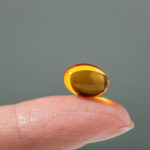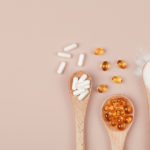By David Blyweiss, M.D., Advanced Natural Wellness
June 20, 2012
- A vitamin D theory that might not wash with you
- How the magical conversion from sunlight to vitamin D happens
- A common sense but challenging suggestion
I had a patient recently who was completely perplexed when I diagnosed her vitamin D deficiency.
“It’s not like I live in Seattle,” she said, sitting in my Florida office.
In fact, at the time of her blood test, she had just enjoyed a two-week “staycation” where she spent a couple of hours at the beach every day. She even took care to expose her unprotected skin a little each day.
Her case isn’t unusual. Many of my patients spend time in the sun. And still, vitamin D deficiency is just as common down here in Florida as it is in other, less sunny parts of the country.
I recently discussed ways sunscreen is contributing to the problem. But there is another possible explanation. If it’s true, many of us might need to make a hard choice between our hygiene and our health…
There is a theory gaining support among some doctors and researchers that we are literally washing vitamin D that we get from the sun… down the drain.
If you think about it, the idea has merit. Consider for a minute how sunlight converts to vitamin D in the first place. On the skin.
You see, vitamin D3 is actually not a vitamin at all. It’s an oil-soluble steroid hormone. When your skin is exposed to ultraviolet rays, it converts a form of cholesterol into vitamin D3. But not instantly.
As you might imagine, it takes some time to make its way through the skin, and into the bloodstream.
How much time? It’s hard to say for sure. It might take just a couple of hours. Or it could be as long as 48 hours.
The World's Quickest Solution for Ending Prostate and Urinary Misery
This has recently been revealed to be one of the only real breakthroughs in prostate health.
The seeds of a strange fruit (sometimes called "Chinese Apples") hold powerful phytonutrients that are a revolution in prostate health.
In fact, UCLA and Veterans Administration research have now proved this to be true.
Not only that, but it may be the worlds quickest solution for ending prostate misery.
Simply stated, these phytonutrients represent a huge step beyond beta sitosterol, saw palmetto, and other phytosterols alone.
Simply click HERE if you want to have fast prostate relief...restful, uninterrupted sleep...no more constant "urges to go"...enhanced virility...and optimal prostate support for life.
Which means that if you go inside after your sun exposure and take a shower, washing your entire body with soap, it’s quite possible you are washing all that natural goodness right down the drain. Before it has a chance to sink into your skin and become available through your blood to the rest of your body.
Now, I’m not suggesting you have to sacrifice showering to be healthy. In fact, this theory has not been proven by science at this point.
What we don’t know yet is exactly where the vitamin D conversion takes place – on the surface layer of skin or in a deeper layer. Studies have been inconclusive, and hopefully, future research will help us find the answer—and allow doctors like myself to develop a firm recommendation.
But in the meantime, in the midst of an epidemic of vitamin D deficiency, it is interesting to contemplate.
The truth is, until the advent of indoor plumbing and hot water heaters, humans never showered as often as we do now. At least once-a-day for most of us, and as many as 2 or more a day when you go to the gym or the beach. Many of us use that morning shower to wake up as much as we use it to get clean.
But many dermatologists feel we over-shower. And we over-soap, for sure. Leading to skin that is too dry, and prone to early wrinkling. And possibly, unable to convert and absorb a critical nutrient.
So, what should you do?
The truth is, it wouldn’t hurt any of us to scale back on the soap. While lots of lather might feel good, it does rob the skin of natural oils, even if we eventually learn that it isn’t washing away the vitamin D.
Perhaps the most common sense approach is to soap all over in your morning shower, but when you bathe after sun exposure, make it more of a rinse off.
And don’t make the mistake my patient made and assume that you are getting enough vitamin D if you get out in the sun regularly. Have your levels checked regularly






